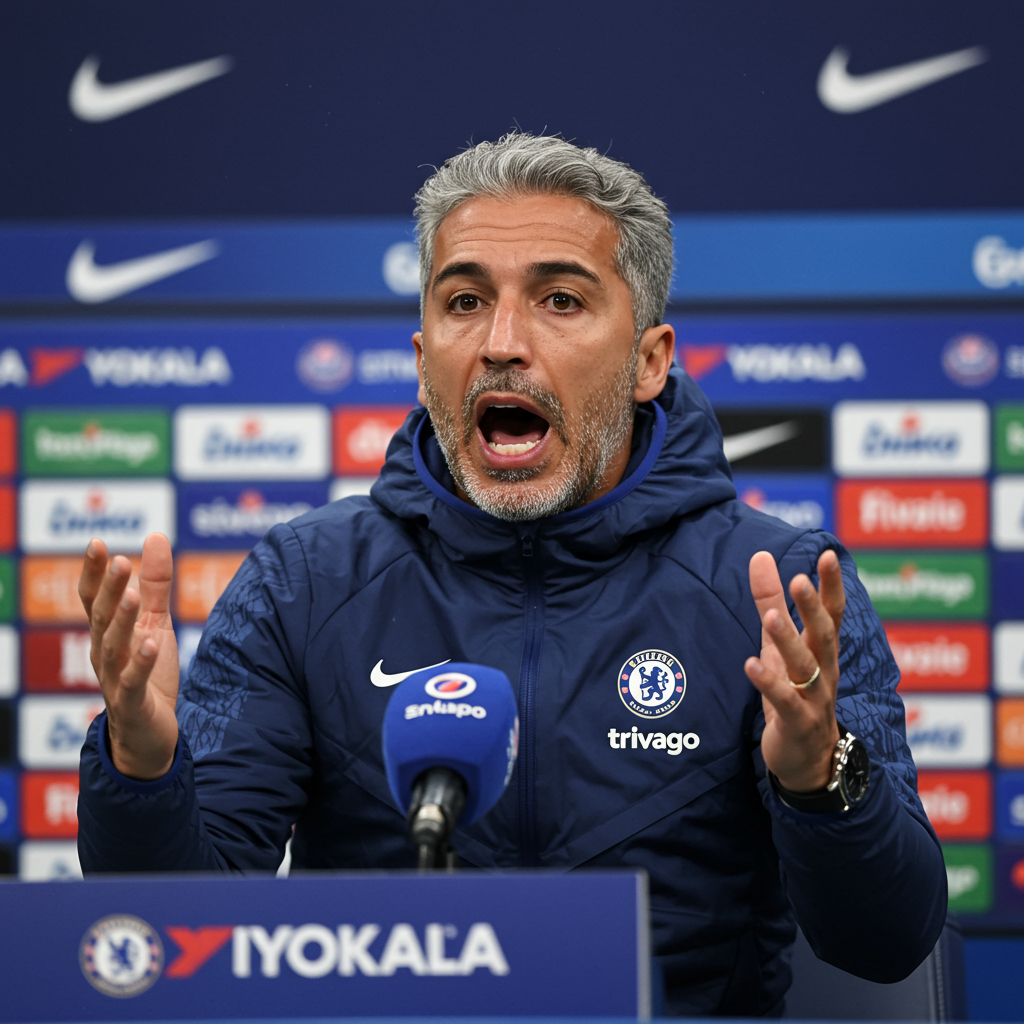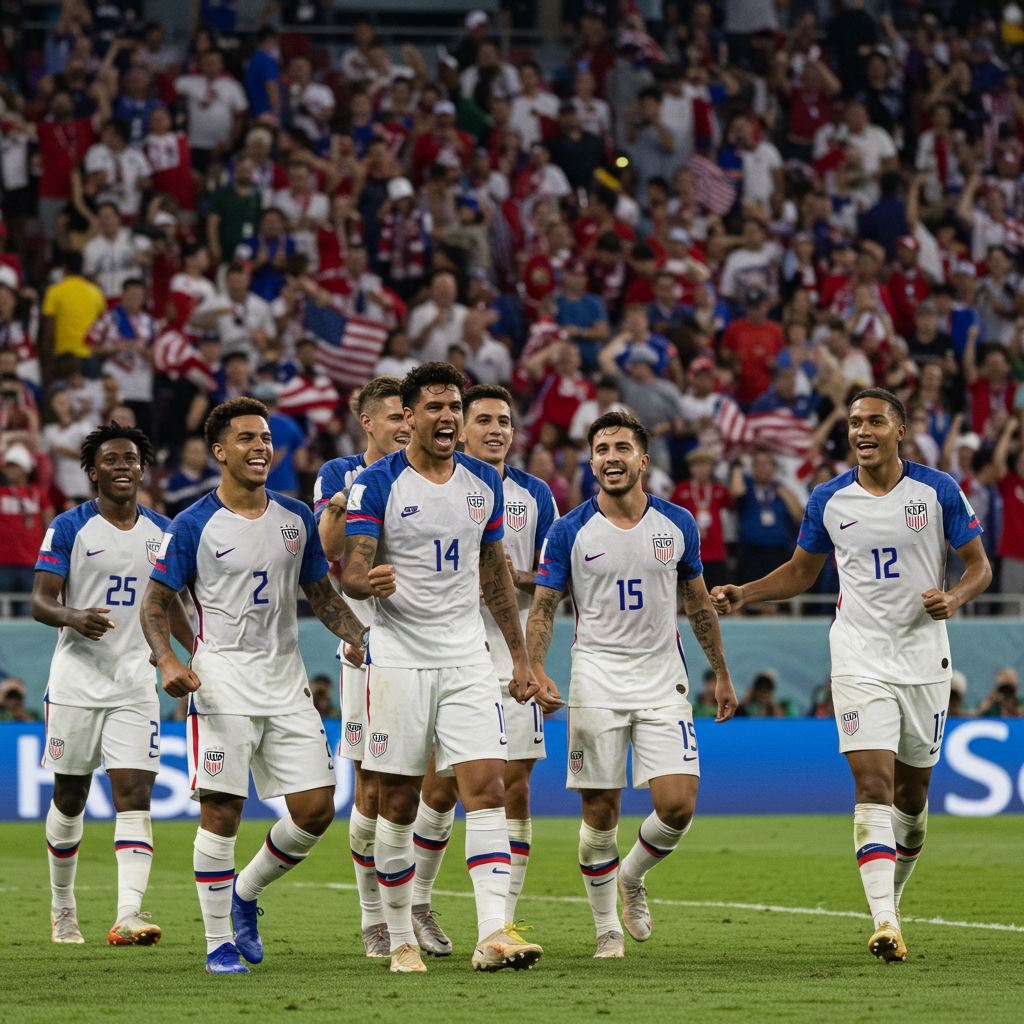Chelsea manager Enzo Maresca didn’t mince words after his side’s Club world Cup clash against Benfica descended into chaos, slamming the frequent weather delays plaguing the tournament in the United States. The match, which Chelsea eventually won 4-1 after extra time, was suspended for nearly two hours due to a severe thunderstorm in Charlotte, North Carolina. Maresca suggested the persistent disruptions make the US “not the right place” to host a major international football competition during the summer months, particularly with the 2026 FIFA World Cup looming on the horizon.
The incident unfolded at Bank of America Stadium with Chelsea leading 1-0 in the 85th minute. They were seemingly in control and cruising towards the quarter-finals when officials ordered play stopped due to a lightning strike in the vicinity. Players and staff were required to leave the pitch and wait in their dressing rooms. The delay lasted an agonizing hour and 53 minutes, significantly extending the match duration.
‘It’s Not Football’: Maresca’s Fury Explained
Returning to the field after such a prolonged break proved challenging. Maresca stated emphatically that the game completely changed after the suspension. “For 85 minutes we were in control,” he noted, but “after the break, the game changed completely. For me it’s not football.” He argued that being off the pitch for nearly two hours allows players to lose focus and tempo. “You cannot be inside… People eating, people laughing, people talking on the mobile. It’s two hours. That’s why I said it’s not football.”
Maresca described the situation across the tournament as a “joke.” He highlighted that this wasn’t an isolated event, pointing out that multiple games had already been suspended due to similar weather conditions. He found it difficult to comprehend how such frequent delays could occur in a major competition. While acknowledging that security protocols for lightning are necessary and understandable, he questioned the location itself if it results in so many disruptions. “If you suspend seven, eight games, that means that probably [this] is not the right place to do this competition,” he asserted.
Widespread Disruptions Across US Venues
The Chelsea manager’s frustrations are echoed by experiences across the Club World Cup. Weather-related delays have become a recurring theme. Before Chelsea’s match, at least five group stage games faced significant stoppages. Some exceeded an hour, including Ulsan vs. Mamelodi Sundowns in Orlando and Salzburg vs. Pachuca in Cincinnati. Benfica’s match against Auckland City in Orlando reportedly endured a two-hour delay even before kick-off. Boca Juniors also experienced a delay against Auckland City in Nashville. Even a game at MetLife Stadium in New Jersey, a key venue for the upcoming World Cup, saw a brief suspension.
Beyond thunderstorms, teams have also battled extreme heat. Maresca mentioned the difficulty of conducting normal training sessions in the hot, humid climate experienced in parts of the US. These combined weather challenges highlight the complexity of hosting a large international tournament during the North American summer.
Implications for the 2026 World Cup
The frequent stoppages raise pertinent questions about the 2026 FIFA World Cup, which will be co-hosted by the US, Canada, and Mexico, with many games scheduled for the US in the summer. Experts note that the patterns seen during the Club World Cup – frequent thunderstorm development, particularly east of the Rockies – are typical for this time of year. This suggests similar weather events could impact World Cup matches.
Many stadiums being used for the Club World Cup and the World Cup lack full roof coverage over the pitch. Venues like Bank of America Stadium (Charlotte), MetLife Stadium (New Jersey), Camping World Stadium (Orlando), and others have open roofs or coverage only over seating areas. While some World Cup venues, such as Atlanta’s Mercedes-Benz Stadium (used in CWC), Dallas, Houston, and Vancouver, offer retractable or full roofs, many key stadiums remain exposed to the elements. The possibility of delays, even for high-profile matches like the World Cup Final (potentially at MetLife), is a real concern based on current experience.
Player Reaction and FIFA’s Stance
Players also felt the disruptive impact of the lengthy delays. Chelsea fullback Reece James described the stoppage as “quite disruptive” when a team is in the flow of the game. He noted the struggle to stay warm despite the overall hot and humid climate. Reports indicated that some Chelsea players, including Marc Cucurella, Levi Colwill, and Tosin Adarabioyo, were visibly frustrated when play was halted.
FIFA and tournament officials acknowledge the inconvenience but maintain that safety is the absolute priority. US safety regulations often require suspending outdoor sporting events if lightning is detected within an eight-mile radius of the venue. Arsène Wenger, Head of FIFA’s technical study group, commented that while delays are “not ideal” for game flow, security must come first. FIFA released a statement confirming the suspension protocols are followed due to adverse weather and lightning risk.
Despite his strong criticism of the conditions and delays, Maresca was quick to praise the Club World Cup itself, calling it a “fantastic competition.” He expressed happiness that Chelsea, who eventually won the match after Benfica went down to 10 men in extra time with goals from Christopher Nkunku, Pedro Neto, and Kiernan Dewsbury-Hall, had advanced to the quarter-finals. However, the experience left him questioning the practicalities of hosting such major tournaments in certain US locations during the summer, starkly contrasting the frequency of these delays with the rarity of such events in World Cups or European Championships.
Frequently Asked Questions
What caused the long weather delay during the Chelsea vs Benfica match?
The match was suspended in the 85th minute due to a severe thunderstorm and lightning strike detected near Bank of America Stadium in Charlotte. US safety protocols require outdoor sporting events to halt play and have participants seek shelter if lightning is a risk within a specific radius, leading to a nearly two-hour delay.
Were other Club World Cup matches in the US also delayed by weather?
Yes, the article reports that multiple games across different venues in the US have experienced significant weather-related delays during the tournament. Examples include stoppages of over an hour in matches involving teams like Benfica, Auckland City, Mamelodi Sundowns, Ulsan, Salzburg, Pachuca, and Boca Juniors at various stadiums.
How could these weather issues impact the 2026 FIFA World Cup in the United States?
The frequent summer thunderstorms and associated delays experienced during the Club World Cup suggest that similar disruptions are possible during the 2026 World Cup, which will also be held in the US during the summer months. Many planned World Cup stadiums lack full roof coverage, leaving them exposed to the weather and the potential for match suspensions due to lightning protocols.
—
The experience in Charlotte highlights the tension between rigorous safety measures and the desire for uninterrupted football. While crucial for player and fan safety, repeated, lengthy delays significantly alter the competitive environment. As preparations for the 2026 World Cup continue, the challenges posed by summer weather in the US will remain a significant factor for organizers, teams, and fans alike.



